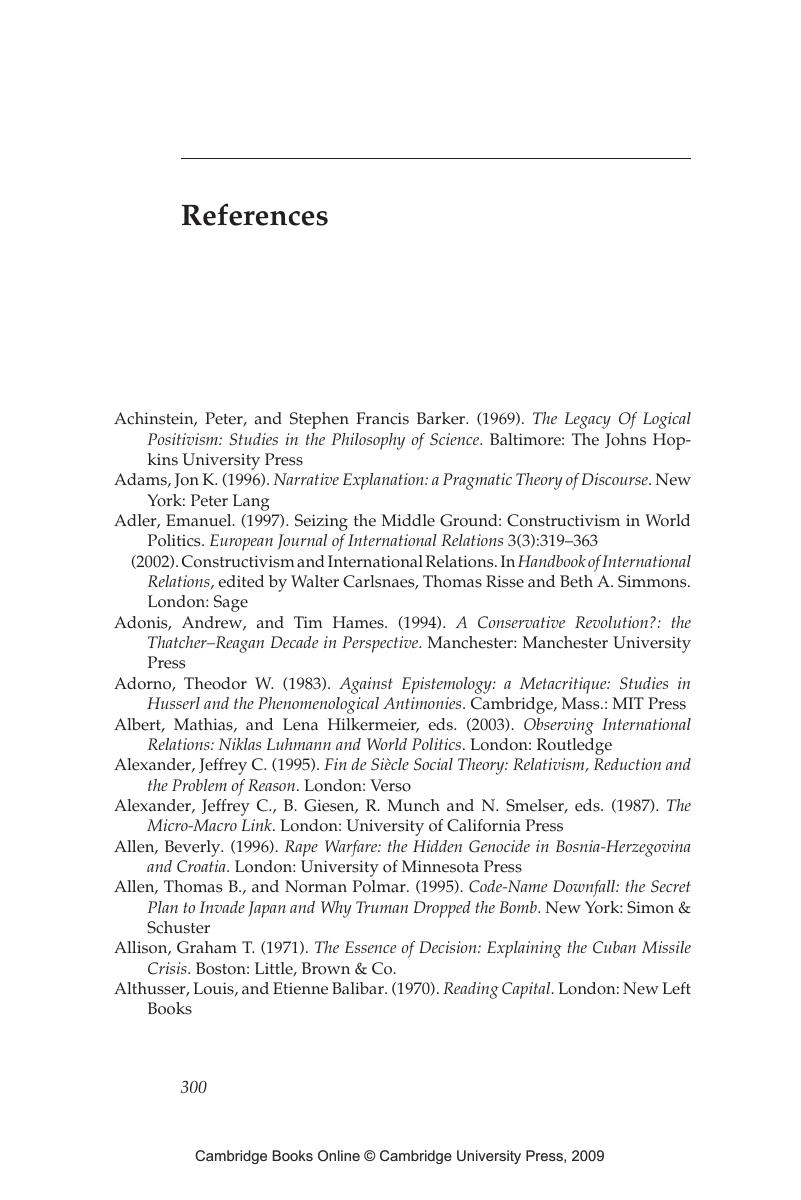Book contents
- Frontmatter
- Contents
- List of figures
- Acknowledgements
- Introduction
- 1 IR: a science without positivism?
- 2 The agent–structure problem: from social theory to IR theory
- 3 The agent–structure problem in IR theory: preliminary issues
- 4 Structure
- 5 Agency
- 6 The agent–structure problem: epistemology
- 7 The agent–structure problem: methodology
- 8 Conclusion
- References
- Index
- CAMBRIDGE STUDIES IN INTERNATIONAL RELATIONS
- References
References
Published online by Cambridge University Press: 22 September 2009
- Frontmatter
- Contents
- List of figures
- Acknowledgements
- Introduction
- 1 IR: a science without positivism?
- 2 The agent–structure problem: from social theory to IR theory
- 3 The agent–structure problem in IR theory: preliminary issues
- 4 Structure
- 5 Agency
- 6 The agent–structure problem: epistemology
- 7 The agent–structure problem: methodology
- 8 Conclusion
- References
- Index
- CAMBRIDGE STUDIES IN INTERNATIONAL RELATIONS
- References
Summary

Information
- Type
- Chapter
- Information
- Agents, Structures and International RelationsPolitics as Ontology, pp. 300 - 329Publisher: Cambridge University PressPrint publication year: 2006
